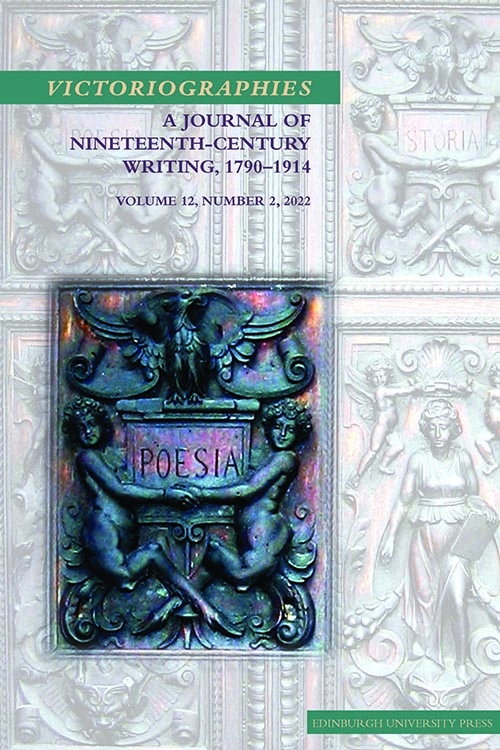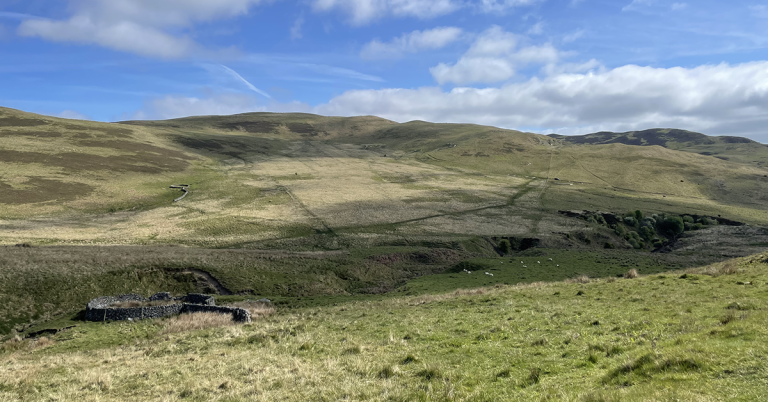
By Katherine Voyles
In a recent double review of Daniel Laurie-Fletcher’s British Invasion and Spy Literature, 1871-1901, and Clare Clarke’s British Detective Fiction 1891-1901: The Successors to Sherlock Holmes I highlighted the dense specificity and attention to historical particularity of each book. I write admiringly in the review about how both Laurie-Fletcher and Clarke bring to life political, social, cultural, and literary concerns precisely by zeroing in on clearly delineated timeframes. Such delimited generic and temporal precision may seem in contradistinction to presentism. Presentism, after all, is conventionally viewed as the error of bringing contemporary concerns to bare on the study of the past.
The Present as the Past
Presentism—its nature, virtues, and drawbacks—is once again top of mind in some quarters. The term’s strong association with history and historiography makes it feel important bring into the discussion the special role that the study of fiction can have on our notions of presentism and how to practice it. And it’s especially important to think through these issues in relation to studying fiction about intelligence, surveillance, policing, and detection—central thematic concerns of the books I reviewed.
On the podcast High Theory Anna Kornbluh says that presentism is conventionally viewed a mistake, an intrusion by the present that prevents us from taking the past on its own terms. Kornbluh herself explains in the episode that the mistake isn’t presentism, but seeing presentism as a mistake.
Literary critics who are committed to writing about the mutually constitutive relations of literary, social, cultural, and political forms have unique ways of engaging presentism precisely because of our attentiveness to literary form. After all, how a narrative is told is necessarily linked to the temporal unfolding of a narrative, which in turn is related to the temporal experience of the reader.
All Stories Run on Two Tracks
The Russian formalists famously distinguish between story and discourse, fabula and szujet, the order of events as they unfold in chronological time, and the order of events as they unfold in the narrative. All stories, it turns out, run on two tracks: the order of events as they occur and the order of events as the narrative presents them.
Explicating how these multiple narrative temporalities work, engaging the importance of the act of moving through multiple narrative temporalities, and illuminating the ability of plot to align them is, of course, not the only way to practice formalism, but it is a powerful one with wide-ranging implications for what formalists have to offer discussions of presentism.
Attentiveness to multiple, simultaneous timeframes and temporalities is a hedge against naïve or unconsciousness presentism: the unthinking privileging of the current over and against the past. Instead, practicing formalism in this way makes formalist literary critics aware of the continuities and discontinuities between past and present.
Conceived of and practiced in this way, presentism is not merely descriptive, but is a form of critique, or at least has been used in the service of critique.
Strategic Presentism
These realities take on special hue in the context of writing, researching, and thinking about the relationship between writing about issues of national security and the organs of national security. They also are vastly important in an age of support for policing reforms, and the backlash against such demands. And they matter enormously today when the work of intelligence and policing are central to issues of immigration and migration. The literature of invasion and espionage, and of detection, surveillance, and policing are absolutely relevant today, just as today’s fiction about the same is absolutely relevant to our thinking about the past.
Thick description of the past. Equally thick description of today. Bringing presentism to bare on issues of invasion, spying, immigration, policing, and detecting matters because doing so cracks opens space for discussing not just what has been, but what might be, what could be, and what we want to be. An awareness of how the order of events as they occur in real time differs from, but can be brought into alignment with, the order of events as they are written about or narrated, aren’t ways of committing the mistake of presentism, they enact the possibilities and potentialities of presentism—not merely to describe the past in terms set by the present, but to use the lived experience of today to study the past in ways that make a better future.
Victoriographies: A Journal of the Long Nineteenth Century invites articles from authors working in burgeoning areas of Victorian Studies and encourages transhistorical, transcontinental, and transmedial approaches. The journal seeks contributions that interrogate afresh ideas, images, texts, objects, spaces, performances, themes, and authors that seem familiar, as well as those which address understudied aspects of the long nineteenth century. Our aim is to emphasize connections and ligatures beyond the temporalities, national locations, and objects of inquiry that have traditionally constrained nineteenth-century and Neo-Victorian scholarship. Articles from researchers of all career stages are welcome, and we especially encourage submissions from scholars around the globe.

Victoriographies: A Journal of the Long Nineteenth Century invites articles from authors working in burgeoning areas of Victorian Studies and encourages transhistorical, transcontinental, and transmedial approaches. The journal seeks contributions that interrogate afresh ideas, images, texts, objects, spaces, performances, themes, and authors that seem familiar, as well as those which address understudied aspects of the long nineteenth century.




